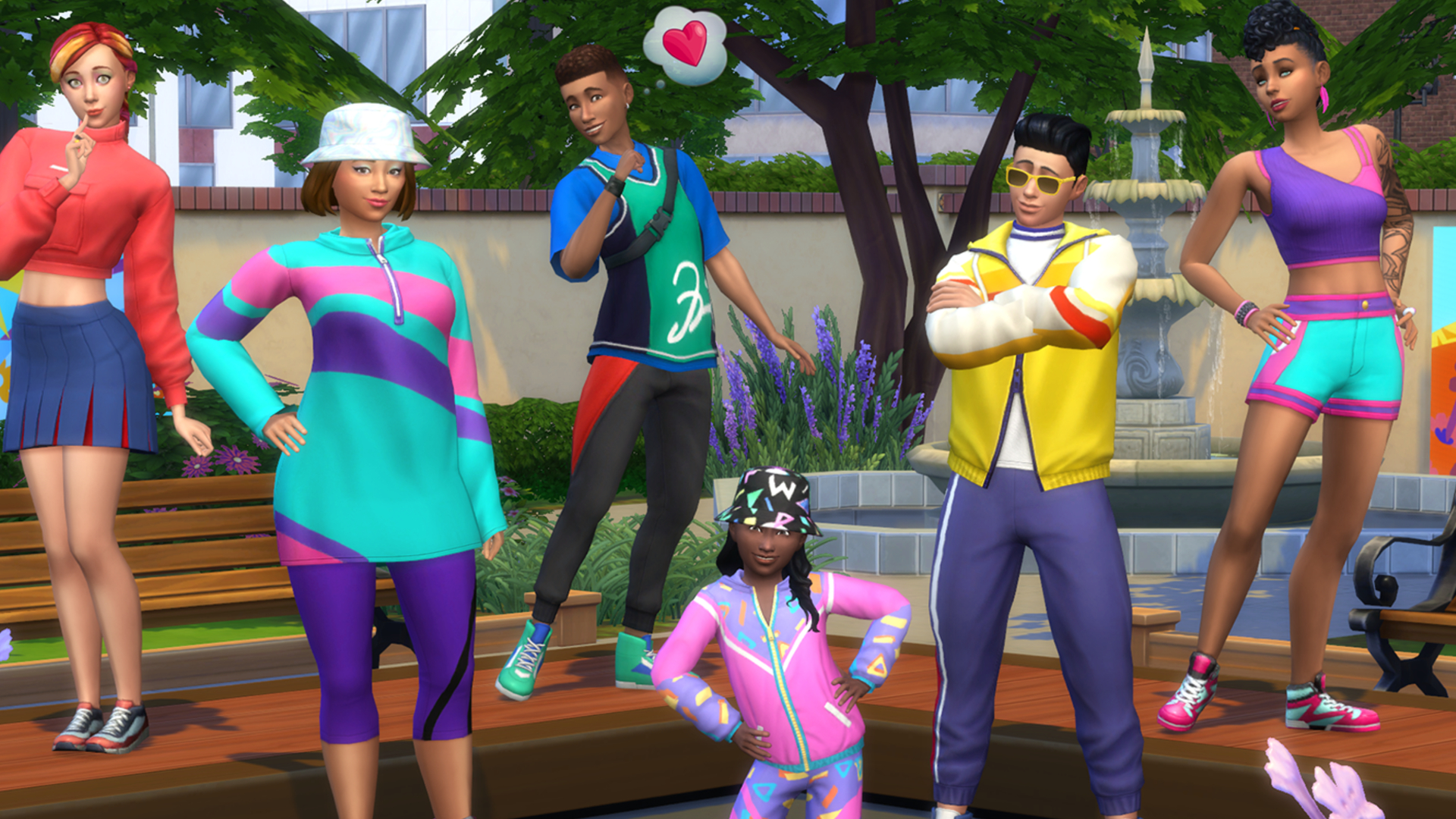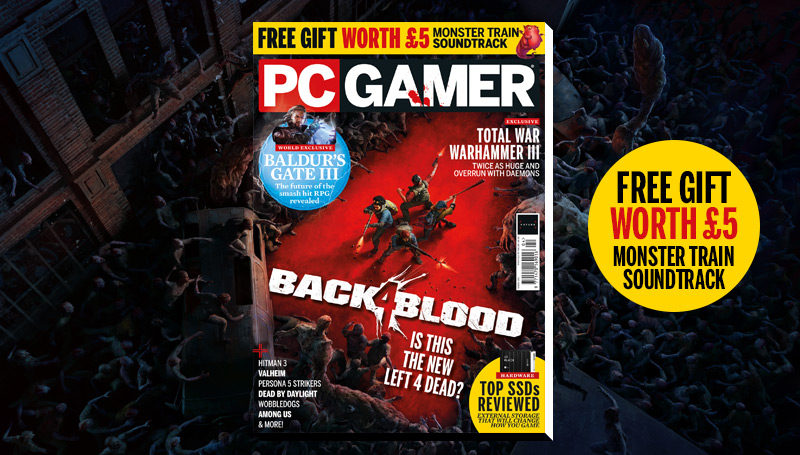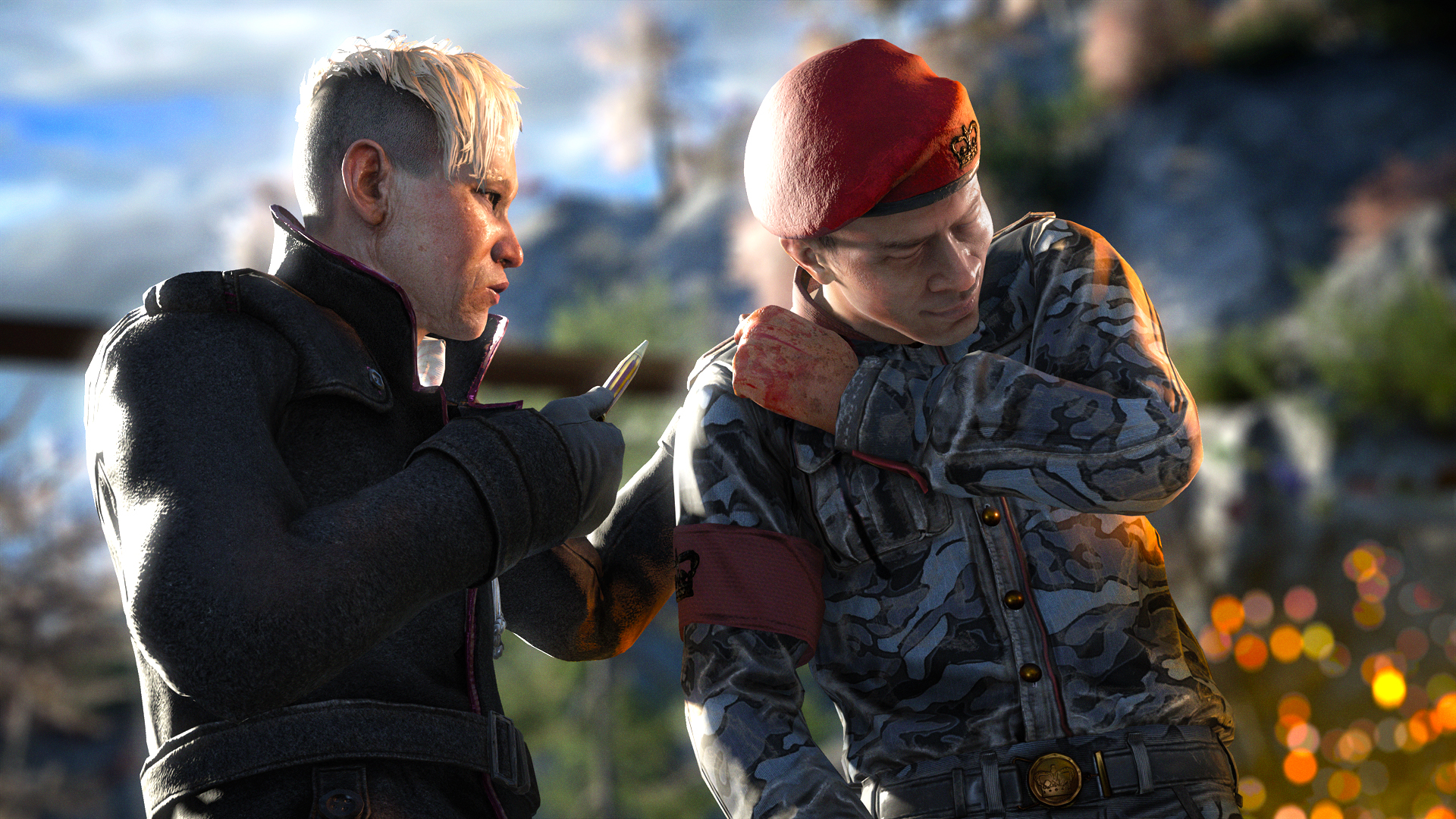How The Sims shaped the career of Far Cry director Alex Hutchinson
Far out.


This article first appeared in PC Gamer magazine issue 352 in January 2021, as part of our 'Positive Influence' series, where every month we chat to a different developer about the inspirations and unexpected connections behind their work.
It's hard to imagine a more prestigious PC gaming university than Maxis in 2008. When an industry fresher named Alex Hutchinson joined the Spore team, he was introduced to Civilization IV designer Soren Johnson, SpyParty creator Chris Hecker, and producer extraordinaire Lucy Bradshaw—who Fortune would later name one of the ten most powerful women in gaming. Presiding over it all was SimCity genius and walking TED talk Will Wright.
"It was a very big learning curve, working with some of the smartest people I've even seen," Hutchinson recalls. "There were all these luminaries from the business, which for a 20-something Australian was pretty exciting."
As it turned out, though, Maxis was a better environment for learning than it was for building games. Despite its acquisition by EA, the success of The Sims had insulated the studio from publisher influence that might have given it tighter structure and goals.
"There were endless fascinating discussions with people about the role of videogames and the purpose of mechanics," Hutchinson says. "I was exposed to all kinds of new ways to think about games. The downside was that getting through those debates was time-consuming and exhausting—everyone had very strong opinions, and a forceful idea of where Spore should go and how it should be."
Wright wasn't always around to mediate, and the finished Spore bore the marks of that indecision. It wasn't one game but several, of varying quality, taped together. Ultimately it hasn't been Spore that's defined Hutchinson's career, but his least high-profile work at Maxis—working to adapt The Sims for consoles.
"For a while they were trying to make the brand more palatable for what they thought a console audience wanted," he says. "They'd added objectives and locations with fixed characters. But when we got to The Sims 2, it occurred to me that perhaps we should try as earnestly as possible to be true to the experience."
It's an attitude that's since become the prevailing one—to launch PC games across multiple platforms without compromise, eschewing the notion that console players are stupid or impatient. Hutchinson later took that perspective to Ubisoft, where he headed up Assassin's Creed 3 and Far Cry 4.
Keep up to date with the most important stories and the best deals, as picked by the PC Gamer team.
Killing with comedy
"The one throughline of my career is the idea that the player's narrative is more important than the game's narrative," he explains. "Allowing room for player expression, making that as wide as possible and celebrating their decisions. That was always something that Soren and Will were excited by, and I think that probably infected my thinking."
With Far Cry, Hutchinson inherited a bleak message embedded in the series by a fellow Ubisoft game director, Clint Hocking: the idea that the player couldn't really change anything for the better with a loaded gun. "Clint's an old friend," Hutchinson says, "and a very serious man".
Hutchinson's own instinct was different: to embrace the black comedy of a man murdering his way across Kyrat so that he could bury his mother's ashes. For him, Far Cry was best handled with a weary smirk.
"I'd become so exhausted by linear shooter narratives about how shooting people is bad," he says. "The only way I could get through rewriting the script was to make it a big joke—the idea that a person would fly to a warzone for any other reason than to get involved in a war. I liked the idea that we could make this big systemic soup, and then the narrative we did build would be a commentary on how that narrative was essentially farcical."
Small wonder, then, that since leaving Ubisoft, Hutchinson has leaned into the systemic side of Far Cry—rejecting story to focus on discovery, aggressive wildlife, and organic encounters between AI. That was the pitch for Journey to the Savage Planet, which Hutchinson built with an independent team before joining Google Stadia last Christmas.
"We're working on new games," he says. "It's the last thing I haven't ever tried, which is to be first-party. Google is very new to the games business, which is exciting. They haven't got any historical assumptions about how games are made, so that can be challenging, but also it's a positive."
Jeremy Peel is an award-nominated freelance journalist who has been writing and editing for PC Gamer over the past several years. His greatest success during that period was a pandemic article called "Every type of Fall Guy, classified", which kept the lights on at PCG for at least a week. He’s rested on his laurels ever since, indulging his love for ultra-deep, story-driven simulations by submitting monthly interviews with the designers behind Fallout, Dishonored and Deus Ex. He's also written columns on the likes of Jalopy, the ramshackle car game. You can find him on Patreon as The Peel Perspective.


